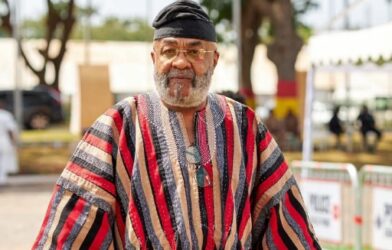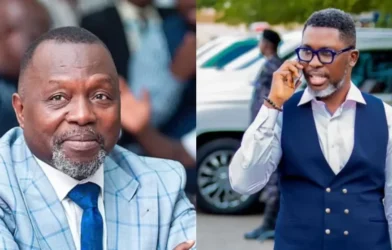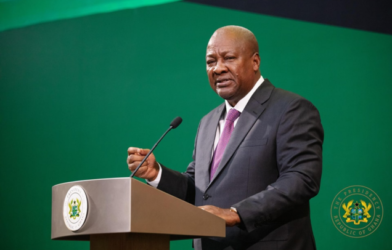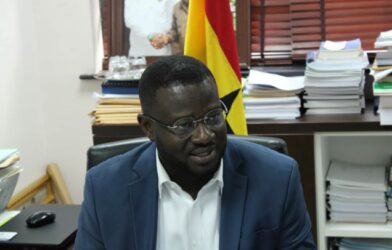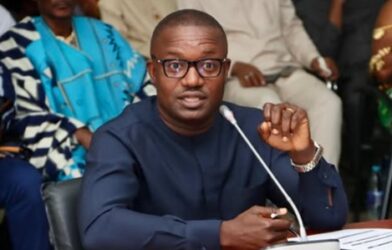President John Dramani Mahama has reiterated his commitment to resolving the long-standing Bawku conflict, emphasizing the need for unity and dialogue during peace-building visits to the Bawku Naba in Bawku and the Nayiri in Nalerigu.
The President met with Bawku Naba Asigri Abugrago Azoka II at the Zug-raan Palace on Tuesday, where he urged chiefs, queen mothers, and elders of the Kusaaug traditional area to exercise patience and collaborate with all stakeholders to achieve lasting peace.
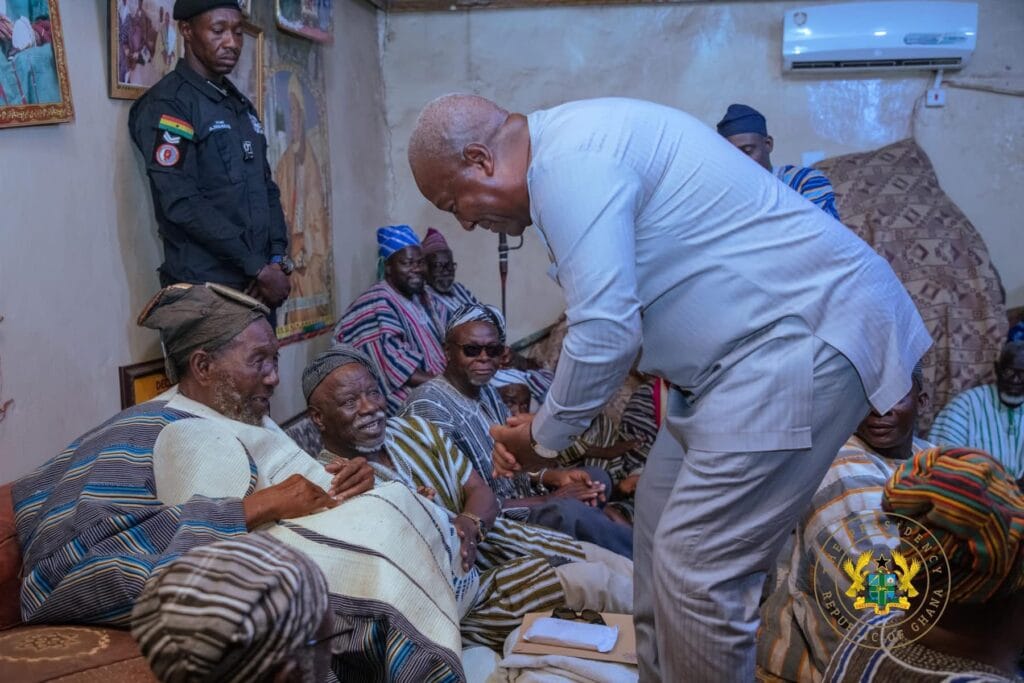
This is a peace-building mission, and I shall also visit Nalerigu to share the same message, President Mahama stated after a closed-door meeting with the Bawku Naba.
In Nalerigu, the President reaffirmed his resolve to bring peace to Bawku during an engagement with the Nayiri, Naa Bohugu Mahami Abdulai Sheriga.
He described the visit as a follow-up to his campaign pledge to prioritize peace in the region. He announced that a high-level mediation process aimed at resolving the conflict would resume soon.
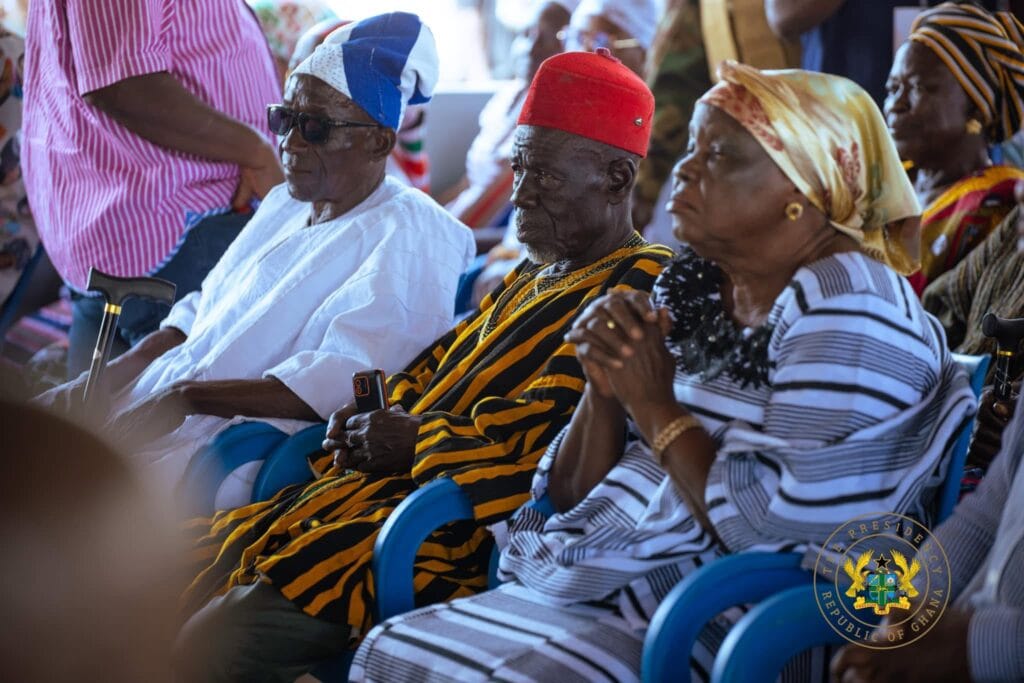
President Mahama also revealed plans to strengthen the security architecture in the region. He disclosed that by the end of the week, his administration would appoint key security officials tasked with addressing the Bawku conflict as a top priority.
We want to assure you that we are putting in place the various appointments to have ministers and other officials responsible for security within this week. When these appointments are made, I will charge them to make Bawku one of the top priorities they attend to and deal with, the President said.
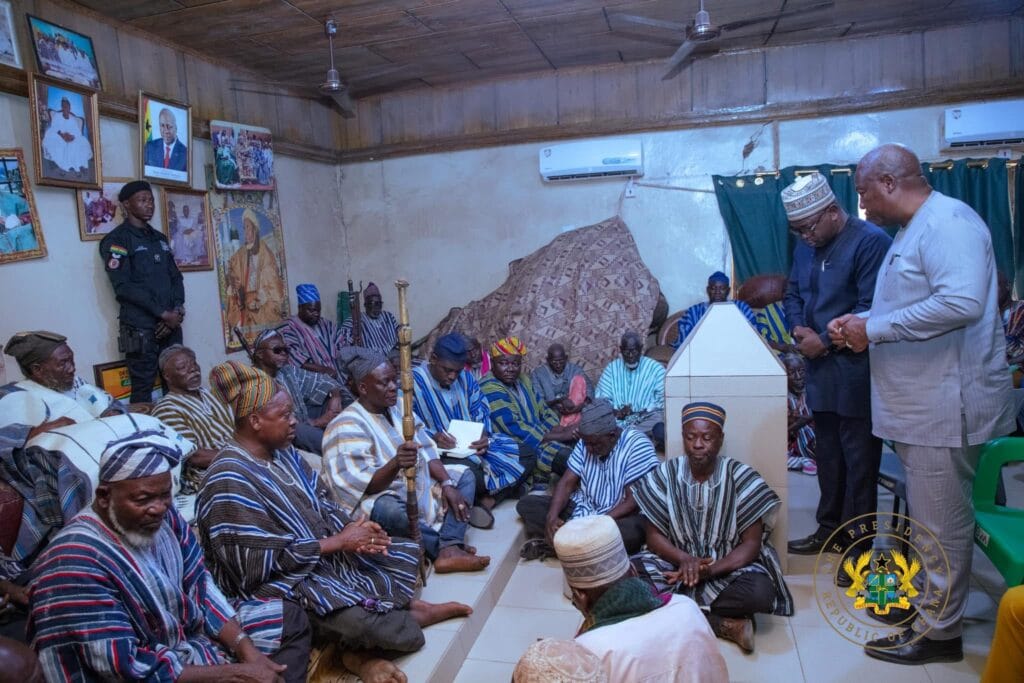
The visits highlight the government’s commitment to addressing one of Ghana’s most persistent security and socioeconomic challenges. The Bawku conflict has spanned decades, affecting lives, livelihoods, and development in the region.
President Mahama called on the traditional leaders and their communities to remain patient and united while pledging the government’s unwavering support for a peaceful resolution.
He underscored the need for collective efforts and dialogue to address the root causes of the conflict for sustainable peace and development.
Story By: Robicon Mornahson







